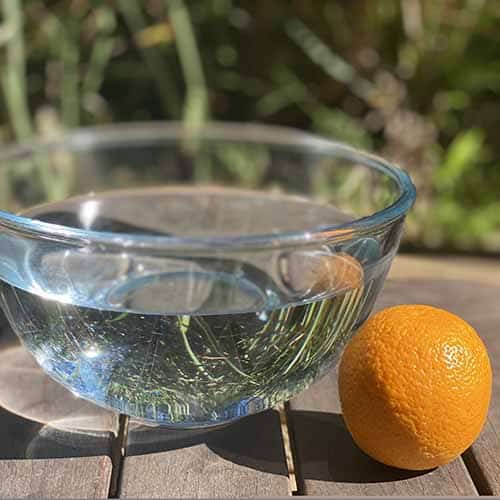
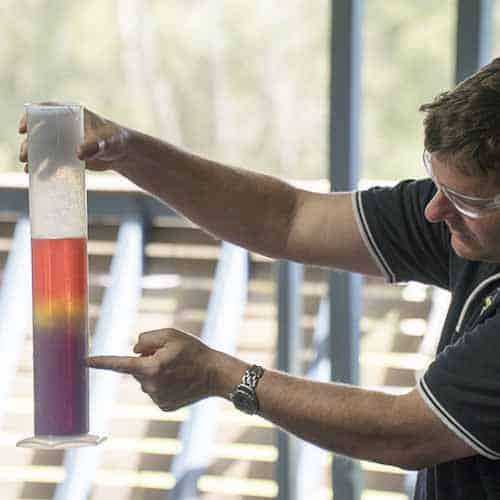
School science visits since 2004!
– Curriculum-linked & award-winning incursions.
– Over 40 primary & high school programs to choose from.
– Designed by experienced educators.
– Over 2 million students reached.
– Face to face incursions & online programs available.
– Early learning centre visits too!
What is going on?
This is all about density!
You would expect that the orange with the skin would sink in water as the rind make it heavier. However, the orange rind is filled with tiny pockets of air which reduces the density of the orange and allows it to float. By removing the orange rind, you were left with a much denser object which then sank in the water.
Variable testing
More about variable testing here
- Try different fruits, does this work with all fruits?
- How can you change the water so that it can float a peeled orange?
Working with Water
Years K to 2
Maximum 30 students
School workshop (NSW & VIC)
60 or 90 minutes
Online Class Available
Marvellous Mixtures
Years K to 4
Maximum 30 students
Hands-on science workshop
60 or 90 minutes
Online Class Available
STEM Full Day Accelerator - Primary
Designed from real classroom experiences, this modular day helps you create consistently effective science learning that directly address the new curriculum with easily accessible and cost-effective materials.
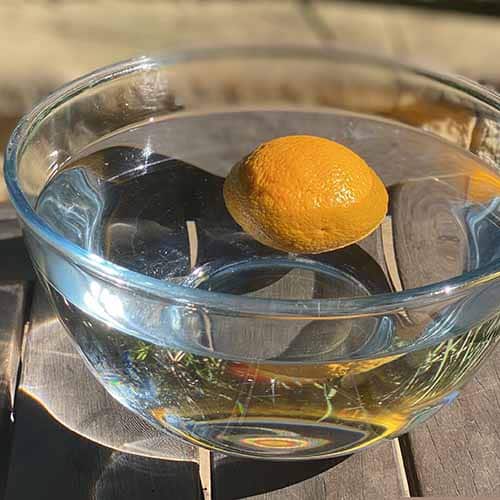
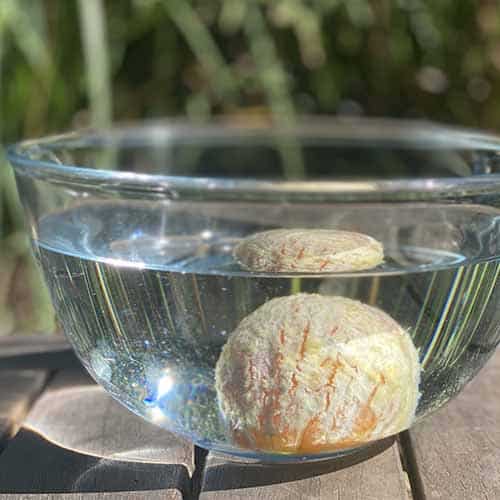
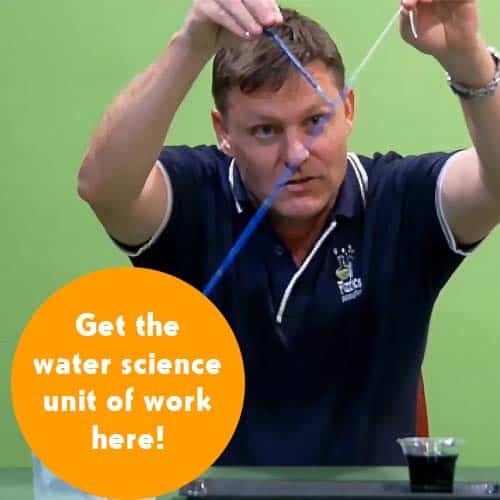
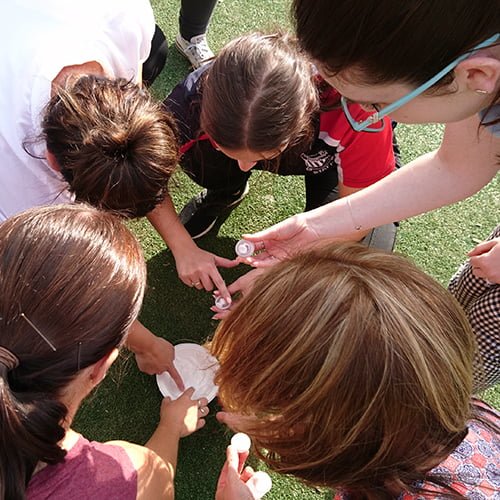

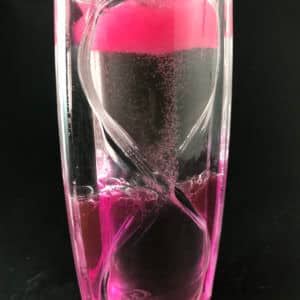























Hi just wondering if you do show for homeschool groups when covid is not restricting group sizes
Hi Alison, we certainly do! We’ll reach out via your email however you are most welcome to contact us on 1300 856 828 or contact us here.
In the ‘Floating Orange Experiment’ under the heading Variable Testing, the question is posed: can you change the water in order for the peeled orange to float? Just wondering how if this is possible… and how? Thanks
Sure thing! You can add salt (increases density) as a variable. Have fun!